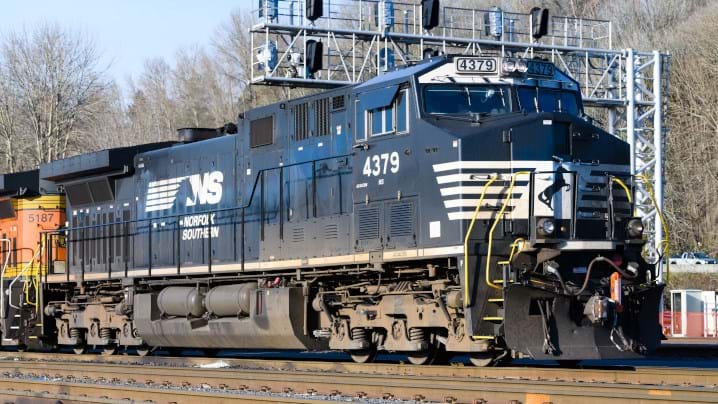Norfolk Southern bill for East Palestine train derailment hits US$1.7bn

THE US government and freight operator Norfolk Southern (NS) have reached an agreement to resolve federal claims and investigations over the train derailment in East Palestine, Ohio.
A consent decree, subject to final court approval, has been issued by the US Environmental Protection Agency (EPA) and Justice Department and outlines NS’s financial commitments to past and future clean-up costs. The agreement is expected to push the company’s financial liabilities for the derailment past US$1.7bn.
The new settlement alone amounts to more than US$310m, with a further US$780m to cover environmental response costs.
The order requires NS to improve its rail safety measures, address the quality of drinking water and waterways in the region, and pay for the health monitoring and mental health services of communities affected by the crash.
Several train cars holding a mix of hazardous chemicals, including vinyl chloride, were involved in the derailment, which forced the evacuation of around 5,000 residents. Residents, first responders, and researchers have reported health issues immediately after and since the derailment, listing coughing, diarrhoea, and even skin lesions as symptoms.
Michael S Regan, the administrator for the EPA, said: “No community should have to experience the trauma inflicted upon the residents of East Palestine.”
He added: “Because of this settlement, residents and first responders will have greater access to health services, trains will be safer, and waterways will be cleaner.”
Financial commitments
The settlement comes after NS’s previous agreement with EPA for a US$600m payout to residents within 20 miles of the affected area.
In the new settlement, NS will pay US$235m for past and future clean-up costs, a US$15m civil penalty for alleged violations of the Clean Water Act, and US$25m for a 20-year medical monitoring plan for residents in affected areas, including first responders and communities in Pennsylvania, among other expenses.
Alan H Shaw, the CEO of NS, said: “We are pleased we were able to reach a timely resolution of these investigations that recognises our comprehensive response to the community's needs and our mission to be the gold standard of safety in the rail industry.”
Heat monitoring improvements
According to a preliminary report from the National Transportation Safety Board (NTSB), the derailment was caused by one of the train cars operating with an overheated wheel bearing. Hot bearing detectors (HBDs) are used to send off audible real-time warnings to crews to alert them of overheating so that they can stop a train to avoid accidents. However, according to the NTSB, the train did not pass through a detector for almost 20 miles.
In the consent decree, the Justice Department has ordered NS to install an additional 259 HBDs on key routes by the end of 2026, with the HBDs no more than 15 miles apart.
The NTSB are holding an investigative hearing into the derailment in June.
Recent Editions
Catch up on the latest news, views and jobs from The Chemical Engineer. Below are the four latest issues. View a wider selection of the archive from within the Magazine section of this site.




